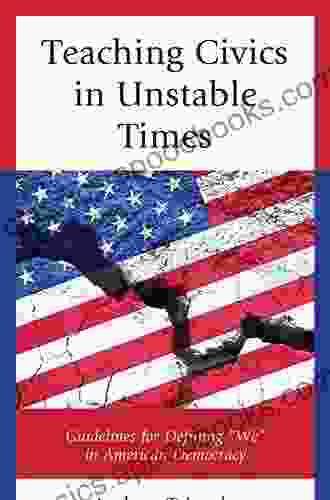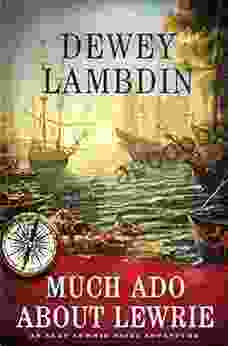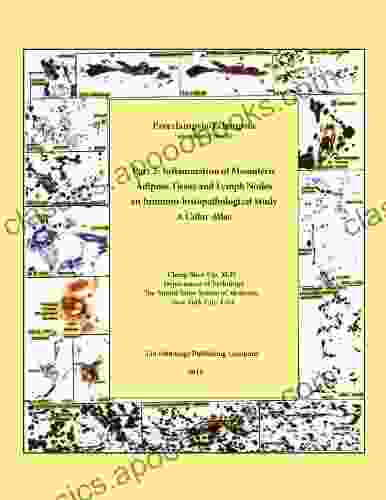Member-only story
Defining "We" in American Democracy: A Comprehensive Guide for Inclusive Citizenship

Marcus Bell
·15.5k Followers· Follow Published in Teaching Civics In Unstable Times: Guidelines For Defining We In American Democracy
6 min read · 682 View Claps
54 Respond
The concept of "we" is central to any democracy, as it represents the collective identity of the people who participate in it. In the United States, the definition of "we" has been constantly evolving, as the nation has grappled with issues of race, gender, class, and immigration. In recent years, there has been a renewed focus on the need to define "we" in a more inclusive way, so that all Americans feel like they are part of the national community. This is especially important in a time when the country is becoming increasingly diverse. This guide will provide an overview of the different ways that "we" has been defined in American democracy, and will offer some suggestions for how we can create a more inclusive definition of "we" in the 21st century. <h2>Historical Perspectives on "We"</h2> The definition of "we" in American democracy has changed over time, as the nation has grappled with different challenges and opportunities. In the early days of the republic, "we" was defined primarily in terms of race and gender. White men were considered to be the only true citizens, and women and people of color were largely excluded from the political process. Over time, the definition of "we" began to expand, as women and people of color fought for their rights. The Civil War and the Reconstruction era saw significant progress in terms of racial equality, and the 19th Amendment gave women the right to vote. In the 20th century, the definition of "we" continued to evolve, as the United States became a more diverse nation. The Civil Rights Movement of the 1950s and 1960s led to the passage of laws that prohibited discrimination based on race, and the Immigration and Nationality Act of 1965 opened the door to immigrants from all over the world. Today, the United States is a nation of immigrants, and the definition of "we" is more complex than ever before. There is no single, universally accepted definition of "we," but there is a growing consensus that we must find a way to define "we" in a way that is inclusive of all Americans. <h2>Different Perspectives on "We"</h2> There are many different perspectives on how "we" should be defined in American democracy. Some people believe that "we" should be defined primarily in terms of race, while others believe that it should be defined in terms of class or gender. Still others believe that "we" should be defined in terms of shared values or experiences. There is no right or wrong answer to the question of how "we" should be defined. The best definition of "we" is one that is inclusive of all Americans, and that reflects the values of our nation. Here are some of the different perspectives on how "we" should be defined: * **Racial essentialism:** This perspective defines "we" in terms of race. It argues that there is a fundamental difference between whites and people of color, and that whites are the only true Americans. * **Class essentialism:** This perspective defines "we" in terms of class. It argues that there is a fundamental difference between the rich and the poor, and that the rich are the only ones who truly belong in the American community. * **Gender essentialism:** This perspective defines "we" in terms of gender. It argues that there is a fundamental difference between men and women, and that men are the only ones who truly belong in the American community. * **Shared values:** This perspective defines "we" in terms of shared values. It argues that "we" are all Americans who share the same values of freedom, equality, and justice. * **Shared experiences:** This perspective defines "we" in terms of shared experiences. It argues that "we" are all Americans who have shared the same experiences of living in the United States. <h2>Creating a More Inclusive Definition of "We"</h2> The United States is a nation of immigrants, and the definition of "we" is more complex than ever before. There is no single, universally accepted definition of "we," but there is a growing consensus that we must find a way to define "we" in a way that is inclusive of all Americans. Here are some suggestions for how we can create a more inclusive definition of "we": * **Focus on what unites us, not what divides us.** All Americans share the same values of freedom, equality, and justice. We should focus on these shared values when we define "we." * **Recognize the diversity of the American people.** The United States is a nation of immigrants, and our diversity is one of our greatest strengths. We should recognize and celebrate the diversity of the American people when we define "we." * **Be inclusive of all Americans.** No matter their race, gender, class, or sexual orientation, all Americans deserve to be included in the definition of "we." * **Work together to create a more inclusive society.** We all have a role to play in creating a more inclusive society. We can start by being more inclusive in our own lives, and by working to create a more inclusive society for everyone. The definition of "we" is central to any democracy, and it is especially important in a diverse nation like the United States. There is no single, universally accepted definition of "we," but there is a growing consensus that we must find a way to define "we" in a way that is inclusive of all Americans. By focusing on what unites us, recognizing the diversity of the American people, being inclusive of all Americans, and working together to create a more inclusive society, we can create a more perfect union for all. Teaching Civics in Unstable Times: Guidelines for Defining “We” in American Democracy
by Andrew Tripodo
4.9 out of 5
| Language | : | English |
| File size | : | 1861 KB |
| Text-to-Speech | : | Enabled |
| Screen Reader | : | Supported |
| Enhanced typesetting | : | Enabled |
| Word Wise | : | Enabled |
| Print length | : | 150 pages |
Create an account to read the full story.
The author made this story available to Library Book members only.
If you’re new to Library Book, create a new account to read this story on us.
Already have an account? Sign in
682 View Claps
54 Respond
Join to Community
Do you want to contribute by writing guest posts on this blog?
Please contact us and send us a resume of previous articles that you have written.
Resources
 Book
Book Novel
Novel Page
Page Chapter
Chapter Text
Text Story
Story Genre
Genre Reader
Reader Library
Library Paperback
Paperback E-book
E-book Magazine
Magazine Newspaper
Newspaper Paragraph
Paragraph Sentence
Sentence Bookmark
Bookmark Shelf
Shelf Glossary
Glossary Bibliography
Bibliography Foreword
Foreword Preface
Preface Synopsis
Synopsis Annotation
Annotation Footnote
Footnote Manuscript
Manuscript Scroll
Scroll Codex
Codex Tome
Tome Bestseller
Bestseller Classics
Classics Library card
Library card Narrative
Narrative Biography
Biography Autobiography
Autobiography Memoir
Memoir Reference
Reference Encyclopedia
Encyclopedia Andrew Hitz
Andrew Hitz Shaniel Watson
Shaniel Watson Andy Southall
Andy Southall Gavin Baddeley
Gavin Baddeley Andrew Steinmetz
Andrew Steinmetz Andrew Greig
Andrew Greig Andrea Laurence
Andrea Laurence Andrew P Owsiak
Andrew P Owsiak Ellen Jovin
Ellen Jovin Christopher R Berry
Christopher R Berry Andres R Edwards
Andres R Edwards Kiran Sandhu
Kiran Sandhu Mike Moyer
Mike Moyer J B Hagen
J B Hagen Stump Connolly
Stump Connolly Connell Barrett
Connell Barrett Sally Britton
Sally Britton Darin D Schiffman
Darin D Schiffman Jacqueline Leonard
Jacqueline Leonard Katherine E Knutson
Katherine E Knutson
Light bulbAdvertise smarter! Our strategic ad space ensures maximum exposure. Reserve your spot today!
Good Author
 Keith CoxFollow ·9.1k
Keith CoxFollow ·9.1k Corey GreenFollow ·12.3k
Corey GreenFollow ·12.3k Jason HayesFollow ·8.9k
Jason HayesFollow ·8.9k Dalton FosterFollow ·5.1k
Dalton FosterFollow ·5.1k Patrick RothfussFollow ·14.1k
Patrick RothfussFollow ·14.1k William FaulknerFollow ·10.3k
William FaulknerFollow ·10.3k Christian BarnesFollow ·18.8k
Christian BarnesFollow ·18.8k Barry BryantFollow ·17.3k
Barry BryantFollow ·17.3k
Recommended from Library Book

 Devin Ross
Devin RossUnlocking the Secrets of the Mind: Brain Mapping...
The human...
·4 min read
121 View Claps
24 Respond

 Jacob Foster
Jacob FosterNovel of Misconception, Truth, and Love: A Journey of...
Unraveling the Lies We...
·4 min read
988 View Claps
80 Respond

 Benji Powell
Benji PowellThe Only Technique You Will Ever Need: Unlocking the...
By [Author's...
·3 min read
564 View Claps
94 Respond

 Pete Blair
Pete BlairUnveiling the Enchanting World of 'Magnolia House' by...
A Literary...
·5 min read
866 View Claps
84 Respond
The book was found!
Teaching Civics in Unstable Times: Guidelines for Defining “We” in American Democracy
by Andrew Tripodo
4.9 out of 5
| Language | : | English |
| File size | : | 1861 KB |
| Text-to-Speech | : | Enabled |
| Screen Reader | : | Supported |
| Enhanced typesetting | : | Enabled |
| Word Wise | : | Enabled |
| Print length | : | 150 pages |
















